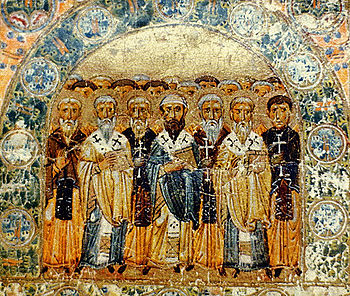Early Church and Receiving Communion
There’s a lot of discussion online at the moment about the conditions under which people may or may not receive communion. I have another post in draft on this subject, but I wanted to do a quick post outlining some of the earliest Church testimony on this subject.
In the First Century, the Didache teaches the following:
“On the Lord’s day, gather yourselves together and break bread, give thanks, but first confess your sins so that your sacrifice may be pure. However, let no one who is at odds with his brother come together with you, until he has reconciled, so that your sacrifice may not be profaned.” – Didache (Chapter 14)
So here we see that unrepentant sin or in a state of disunity cannot receive communion. We find Justin Martyr in the Second Century saying something very similar:
“This food we call Eukaristia [the Eucharist], and no one is allowed to partake but he who believes that our doctrines are true, who has been washed with the washing for the remission of sins and rebirth, and who is living as Christ has enjoined” – St. Justin Martyr, First Apology (Chapter 66)
Here we find the three basic conditions to receiving communion: baptized, assent to Church doctrine and right living.

I’ve got a more substantial post in the works on the subject of interdenominational communion which I’ll publish next week…
